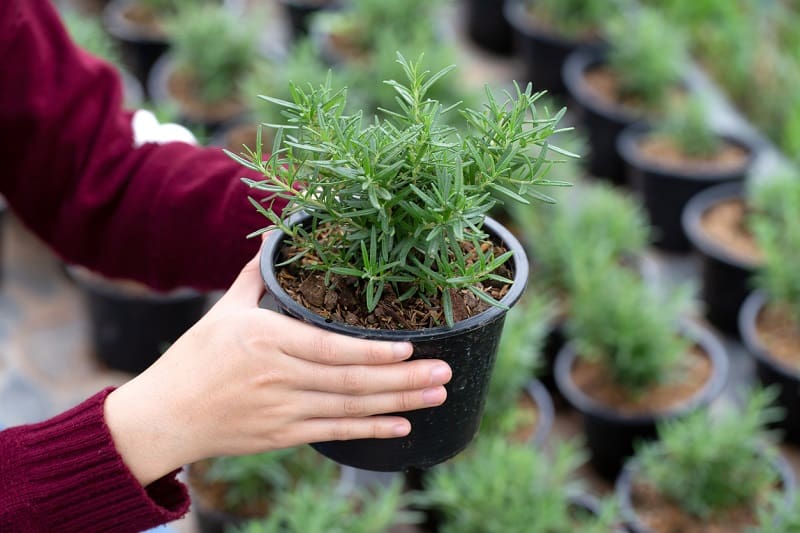One of the most annoying things to deal with as a homeowner is pests. Sometimes, no matter how much you clean the house, they always seem to be around. Not only are they a pain to deal with, they also carry germs that can cause a multitude of diseases. For protection from roaches, flies, bed bugs, mosquitoes, and ants, you can spend a pretty penny stocking up on bug spray and pesticide. But did you know that the mere presence of some plants in your home is enough to send these pesky bugs running?
In this article we will learn about which plants you need to have inside your home if you want to get rid of pests.

ROSEMARY
Looking for an indoor plant that repels bugs? Your favorite roast chicken topping is also great at keeping cockroaches and mosquitoes out of your home. Folks who live in a hot, dry climates can also plant this fragrant herb outside to help keep slugs and snails away. (Just make sure it’s within easy access of your kitchen—you’re going to want to reach for it come dinnertime.)
MARIGOLDS
Marigolds are beautiful flowers that ward off mosquitoes, so they are a win-win for your home. You can plant them in boxes and place those boxes in your window sills to keep the mosquitoes out. Marigolds contain pyrethrum, which is an ingredient of many insect repellents. You can also plant these flowers around your tomato plants to protect them from pests.Sage
BASIL
Pesto-maker, Caprese salad topper and…mosquito repellent? Yep, this fragrant green herb is toxic to mosquito larvae and will also deter the carrot fly, asparagus beetles and whiteflies. While you can definitely grow your basil plant indoors, keep in mind that it needs six to eight hours of full sunlight per day.
LEMONGRASS
You may already be familiar with citronella’s pest-repelling powers. But did you know this magical oil is found in one of your favorite Thai recipe ingredients—lemongrass? You’ll love this plant’s fresh, citrusy scent (try adding some in your next coconut curry) but mosquitoes won’t.
MINT
Mints such as peppermint, spearmint, and common mint are both excellent bug repellents and insecticides. Most natural bug repellents include mint, which works across a broad spectrum of pests.
Mint grows voraciously, and it rapidly spreads when planted outdoors, so it should not be hard to get plenty of mint from one potted indoor plant. Put a mint plant near windows, leave sprigs laying around your house, or soak it in ethanol to make bug spray.
You can also use mint in soap, incense, or alcohol as a bug spray, aside from its many culinary uses.
LAVENDER
You can also plant lavender around your house. It will make your garden smell heavenly while keeping away flies, beetles, and fleas. Like catnip, lavender oil can be used in a spray. If you have a pollen allergy, it might be best to plant the lavender bush outside. Place lavender near your doorways to deter flying insects from entering.
